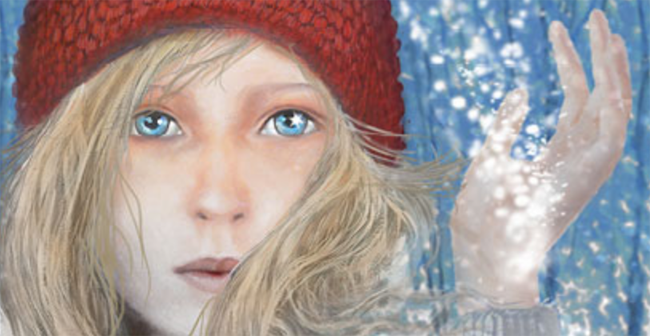Culture
 Illustration: Courtesy of Arena Stage
Illustration: Courtesy of Arena Stage
Arena Stage’s Snow Child Focuses On The Nature of Impermanence
April 6, 2018 @ 12:00am
Sometimes, the only way to go on is to dig deep, find resilience and push forward. But to get to that point, some healing often needs to take place first. Enter Jack and Mabel: a couple ridden with grief after they lose their first child and discover they can’t have any more. What ensues is a journey of healing and understanding that not everything is as it seems, and nothing is permanent, especially in the realm of the Alaskan wilderness.
The world premiere of the musical Snow Child, based on a novel by Eowyn Ivey, is coming to Arena Stage from April 13 to May 20. With a focus on Alaskan culture and environmentalism through the musical talents of Bob Banghart and Georgia Stitt, Snow Child comes to life on stage – quite literally – with the help of some gorgeous lighting techniques and masterful puppetry.
Matt Bogart as Jack contemplates the impermanence of nature, the true meaning behind Snow Child and what he hopes the audience will learn from it in this exclusive interview with On Tap Magazine.
On Tap: How would you describe the story of Snow Child?
Matt Bogart: Our musical focuses on Jack and Mabel, who are a childless couple. They decide to move from Pennsylvania out to Alaska to become homesteaders to change their life and get a new start for themselves. They end up understanding how difficult that can be, to try to build a new life out in the wilderness alone. And from the grief of being childless, they plunge into a kind of sadness together out in Alaska. At one point, they begin to build a snow child, and this child becomes real to them. She’s spiritual and mythological in a lot of ways, and she becomes their child, but a part of them knows that this cannot last with the arrival of the spring. We’re left to try and grasp that nothing is permanent, but this journey of having a child of their own hopefully has healed them in many ways.
OT: How does the musical differ from the novel written by Eowyn Ivey?
MB: Our story in the musical ends about two-thirds through the book because putting a novel on stage, you’d be there for a couple days and no body wants that. I think that the authors have taken the part of the story that they want to tell and have solidified it. We call it an Alaskan musical folktale because it follows some of the rules and style of musical theater but it also incorporates a sense of mysticism and environmental music as well as sound effects and puppetry and other elements that you don’t always see in your typical musical.
OT: What do you hope audiences will take away from Snow Child?
MB: I hope that they will see some of their own life experiences reflected in this piece and that we are successful in reiterating what is taught in these old folk tales. This folk tale has to do with the impermanence of nature – how nature can sweep in and change your life, how losing a child can change your life, and how gaining a child, whether it’s born into this world or if you create it in your mind, becomes [a form of] healing. Through that experience, you learn something and you’re brought to a different place.
OT: Why do you think Snow Child is an important story to tell?
MB: I think that we try to control everything in our culture, all over the world. Jack and Mabel think they can have a child and grow their family, but they lost the first child as a stillborn, and they couldn’t get over it. The doctor told Mabel that she couldn’t have another. To believe one thing about your life and then understand that’s not going to happen can change a person’s view about whether they feel like they want to go on or not. This is a story about the unexpected, whether its nature, whether its understanding that we can’t control fate sometimes or whether its understand that we need to dig deep and be resilient.
Opening night of Snow Child is Friday, April 13 at 8 p.m. Tickets are $41-$90.
Arena Stage: 1101 Sixth St. SW, DC; 202-488-3300; www.arenastage.org








